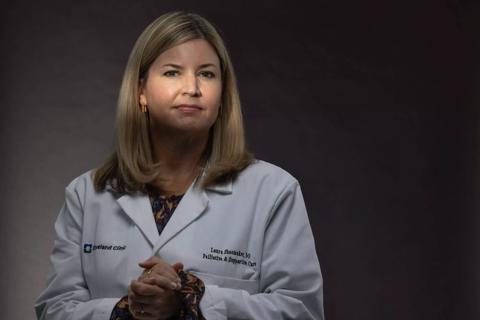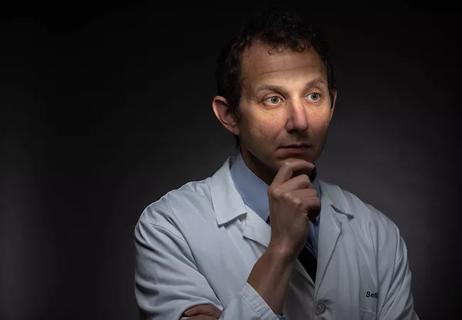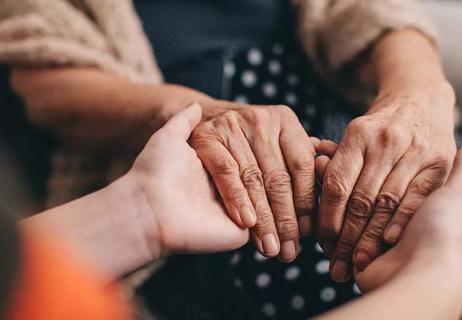Embedded ethicists do much more than provide insight for medical decision-making

Margot Eves, JD, MA, serves an important role in patient care at all of Cleveland Clinic’s hospitals in northeast Ohio even though she has no medical degree. She is one of eight clinical ethicists at the Center for Bioethics, which was founded in 1984 to provide ethics consultations, education, policy recommendations and research.
Advertisement
Cleveland Clinic is a non-profit academic medical center. Advertising on our site helps support our mission. We do not endorse non-Cleveland Clinic products or services. Policy
“Our role is to help when there are conflicts of values among the medical team, patient or family members,” says Eves, Director of the Clinical Ethics Immersion Program in the Center for Bioethics. “We are one resource to help people think through challenging situations, reconcile some of those differences and match the available treatment options with the patient’s values.”
Eves and her colleagues consult on a wide range of topics related to end-of-life issues, medical interventions, informed consent, human research subjects, the role of surrogates and much more. But as the healthcare environment changes rapidly, so too does the job of clinical ethicists.
Eves co-authored an article in the fall 2019 issue of the Journal of Clinical Ethics on the emerging roles of clinical ethicists, then later explored those roles and how clinical ethicists interface with patients on National Public Radio with her colleague Jane Jankowski, DPS, and other Cleveland-area experts.
They discussed the following roles:
Advertisement
“Medicine continues to move toward a team model where everyone contributes to patient care,” says Eves. “With their ever-expanding roles, clinical ethicists are an important part of that team.”
Advertisement
Advertisement

In rehabilitation medicine, the answer might require nuance

Mental health colleagues can provide much-needed perspective

Palliative care specialists know hard conversations can also be valuable ones

Variables affect nuances of the conversation

Authors discuss ethical challenges associated with sponsored genetic testing

Program focuses on nurturing ethics leaders in daily practice

Medical, ethical and legal considerations

An end-of-life dilemma in the intensive care unit